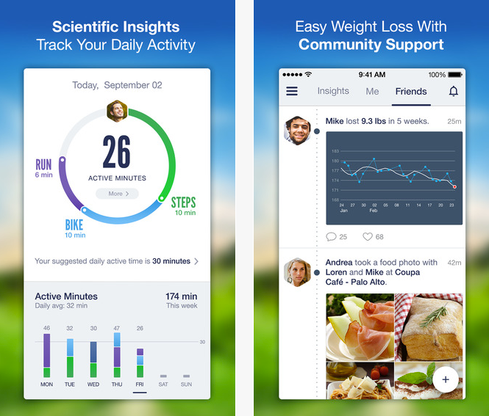Google Wants You To Be HealthyGoogle Wants You To Be Healthy
An assortment of cloud-based data collection and analysis tools aimed at health practitioners, researchers, and individuals offer ideas for any enterprise looking to maximize cloud computing.


10 iPhone, Android Apps To Keep You Healthy
10 iPhone, Android Apps To Keep You Healthy (Click image for larger view and slideshow.)
The promise of cloud-based computing has fascinated users since it became widely available. But it has been hard to point out specific illustrative examples of what this kind of computing can actually deliver to the C-suite.
Fortunately, real uses that have been in development are starting to come to light. As an example, the Broad Institute of MIT announced last week that it is making its Genome Analysis Toolkit (called GATK) available as a tool on the Google Cloud Platform.
The institute said in a statement: "The goal is to enable any genomic researcher to upload, store, and analyze data in a cloud-based environment that combines the Broad Institute's best-in-class genomic analysis tools with the scale and computing power of Google."
[ Is technology out to get us? Read 9 Ways Technology Is Slowly Killing Us All. ]
GATK is used to analyze genomic sequencing data. The massive amounts of data that it uses requires some major computing power in order to be productive. The Google Genomics service gives researchers another way to process their data so that are they not limited by their computing infrastructure. Though still in an alpha release for the cloud, GATK is expected to proceed rapidly. Broad also noted that this relationship is non-exclusive to Google, and other similar projects may be developed.
This is a good illustration of cloud computing's advantage for an enterprise -- the unshackling of computing projects from available computer infrastructure. By having computing resources expand and contract as needed, enterprises can tackle the kinds of projects that might not have been attempted if intense capital investment had to be done beforehand.
Google has delved into health in a big way in the last few years. It launched Calico in 2013, which has the lofty goal of trying to understand and mitigate human aging. Calico has announced multiple partnerships with some of the leading researchers in the aging field, with the stated goal of making discoveries into products or therapies.
Google has also moved into developing hardware such as the smart contact lens, which measures the glucose level in tears, to be marketed by Novartis. Google also announced this week a wristband for collecting clinical data that can then be processed by medical researchers.
These wearables will most likely be used in the Baseline project, which Google announced last year.
All of these health efforts have a common need for the collection and analysis of massive amounts of data. Google is showing other enterprises that such projects can be done, and how to do them.
About the Author
You May Also Like






